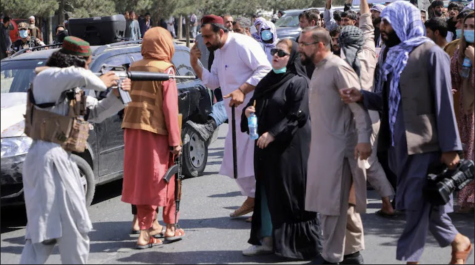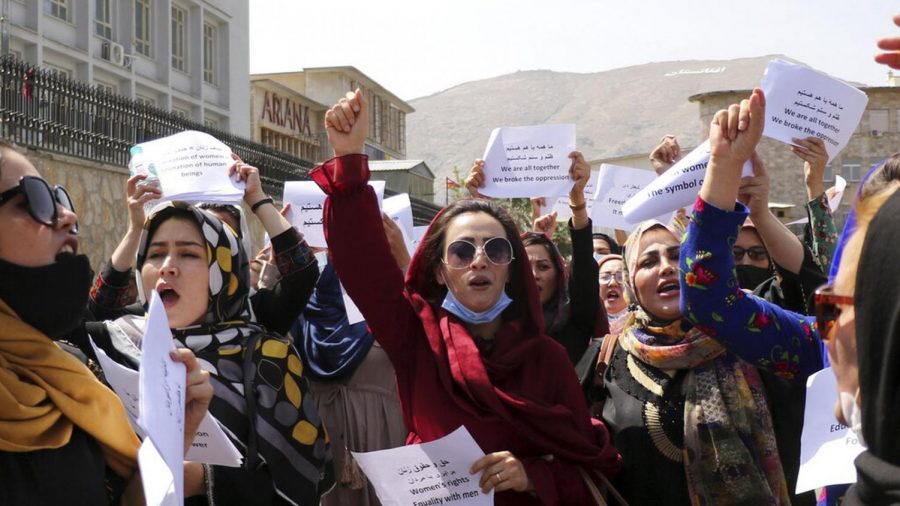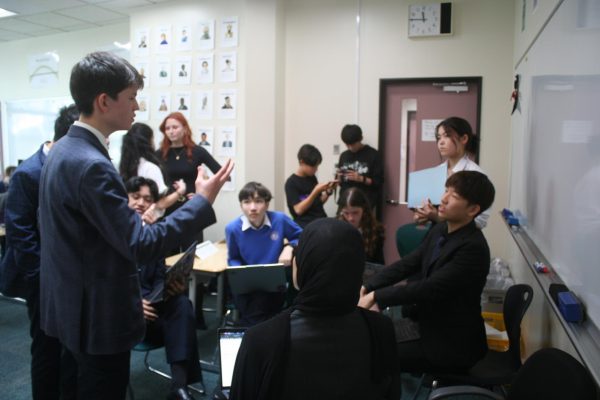Women and the New Taliban Government
October 3, 2021
By August 14 of this year, Talibani forces had seized Mazar-i-Sharif. Within 24 hours, they would march through Kabul’s gates and seize control of the city, while Afghan President Ashraf Ghani fled the country. The rate at which the Afghan forces crumbled was alarming. This was worsened by a hasty withdrawal of US troops, leaving behind military equipment that fell into the Taliban’s hands. (Reuters provides a great timeline of events.) Amid the panic and chaos, a cloud of uncertainty began to descend on women’s rights in the country.

Under the initial Taliban regime from 1996-2001, women’s rights were severely curtailed. A US State department report from 2001 highlights the government’s abusive control over women’s clothing and movement, in the name of religion. A woman found violating these rules would be subject to the Taliban’s version of justice: instances of public floggings, extrajudicial killings, and rape were commonplace. Girls above the age of eight were barred from receiving higher education and rules for intersex interaction prevented women from receiving adequate education and health care.
In the 20 years following the fall of the Taliban government in 2001, Afghanistan saw improvements in women’s rights. Women became active members of the workforce, and barriers to their education were lifted. The country allowed women to participate in international sporting events, and some became business owners. As recently as 2020, a law was passed to allow women to include their names on a child’s birth certificate.
Such improvements were small steps in the right direction. However, with the Taliban back in charge, women who experienced such freedoms foresee a return to the suffocating, violent regime of the 90s.
Since regaining power, the new regime has sent mixed signals about its stance on women’s rights. Taliban spokesperson Zabihullah Mujahid stated that women will be granted rights “within the framework of Islam,” adding, “Women are going to be very active within our society.”
As the Taliban tries to convince the international community that it will establish a stable and prosperous government, reports are emerging of a return to old ways. Soon after forming the government, leaders issued a statement asking all women, apart from those working in healthcare, to refrain from going into work until the security situation improved. Furthermore, male and female students studying in the same classroom had to be separated by a curtain according to new guidelines. Such policies of segregation have been instituted in public places as well.
Even more alarming has been the exclusion of women from public policy making. The interim cabinet is made up entirely of men, and spokesperson Sayed Zekrullah Hashimi claimed, “It is not necessary for women to be in the cabinet—they should give birth.” Such misogynistic views have resulted in the closure of the Women’s Affairs Ministry, and the re-establishment of the Ministry of Virtue and Vice. The latter was a feared ministry during the first regime, acting as a moral and religious police force. It garnered a reputation for publicly beating women it found violating Sharia law.
Despite the crackdown, Afghan women unwilling to give up their rights are standing up to the new regime. The formation of an all-male cabinet has been met with opposition, as women across the country took to the streets to protest against this discriminatory act. A protest in front of the Presidential Palace—which acts as the Taliban’s Headquarters—was met with violence, as protestors were attacked and beaten.
In the face of such violence, social media has become an invaluable tool in spreading the message of women in Afghanistan. To express their opposition to the Taliban’s strict dress code for female students, women have begun posting images of themselves in colourful dresses and traditional clothing using the hashtags #DoNotTouchMyClothes and #AfghanistanCulture.




















